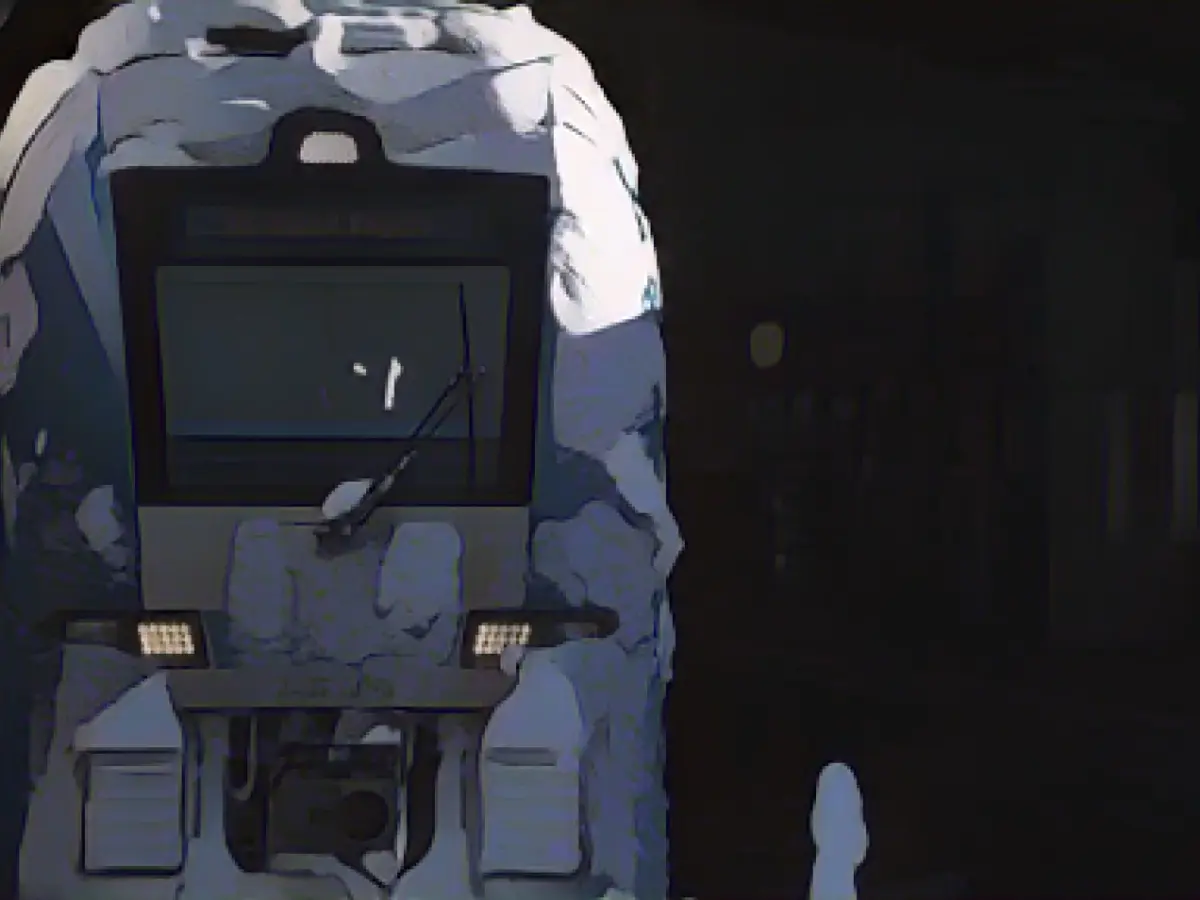Snowy Struggles in Bavaria: Emergency Services and Aid Organizations Unravel Challenges
The recent snowfall in the southern and eastern parts of Bavaria has put a considerable strain on emergency services and aid organizations. In various districts of southern Bavaria, these vital services have reached their breaking point, even with the use of snow chains and all-wheel drives. Without additional support from mountain rescue services, navigation through the snow became an uphill battle, as stated by a spokesperson for the Bavarian Red Cross (BRK) on Saturday.
The ordeal didn't halt at the emergency services. The THW and BRK joined efforts on Friday evening and Saturday to aid in the evacuation of trains and attending to the passengers of dysfunctional vehicles on highways. In Nuremberg, rescue personnel from Arbeiter-Samariter-Bund, BRK, Malteser Hilfsdienst, and Johanniter-Unfall-Hilfe were reported at the main railway station, providing care for stranded passengers.
Though the THW assisted in countless places by shoveling snow from rooftops and freeing vehicles from snowbound roads, the objective was to keep traffic moving smoothly as possible. In Straubing, the roof of the ice hockey stadium was cleared of snow by the fire department and the THW, making sure the structure remained sound for the DEL team – the Straubing Tigers.
However, unanticipated challenges emerged in some parts of southern Bavaria, particularly in the domestic care sector. The BRK spokesperson expressed concerns surrounding the provision of essential services like "meals on wheels" and "outpatient care."
During the weekend, relief forces from across Germany, such as the THW, mobilized to aid local efforts in Bavaria. As Munich grappled with the snowfall, a combined force of various aid organizations worked together to tackle the situation. Despite the challenges, the BRK and THW remained committed to their mission, ensuring the safety and well-being of those in need.
The impact of the snowfall was profound on the railroad system in Bavaria, necessitating evacuations and offering care to stranded passengers in stations such as Nuremberg. As the snow continued to fall and temperatures held steady, the perseverance of emergency services, aid organizations, and operational forces in Southern Bavaria played an instrumental role in managing the situation and offering vital assistance to those affected.
Further Reading:
The operational force of the THW in Southern Bavaria worked tirelessly to maintain roads clear and assist with traffic, utilizing shovels to remove snow and aid stranded vehicles. Despite the best efforts of emergency services in Bavaria, the ceaseless snowfall persisted, particularly in the domestic care sector. In some areas of southern Bavaria, the Red Cross BRK had to prioritize "meals on wheels" and outpatient care prior to addressing other needs due to the widespread impact of the severe weather.
As rescue operations from all across Germany, including the THW, joined forces to support local efforts in Bavaria, the city of Munich was hit hardest by the snowfall. Countless relief organizations, including the BRK, joined forces to manage the situation and ensure the security and well-being of those in need. The railroad system in Bavaria also experienced repercussions – evacuations and care for passengers at major stations, such as Nuremberg, were essential responses to the weather conditions.
Given the limitations and complexities of the evolving situation, the collective efforts of emergency services, aid organizations, and operational forces in Southern Bavaria proved invaluable in weathering the storm and offering much-needed aid to those affected.








